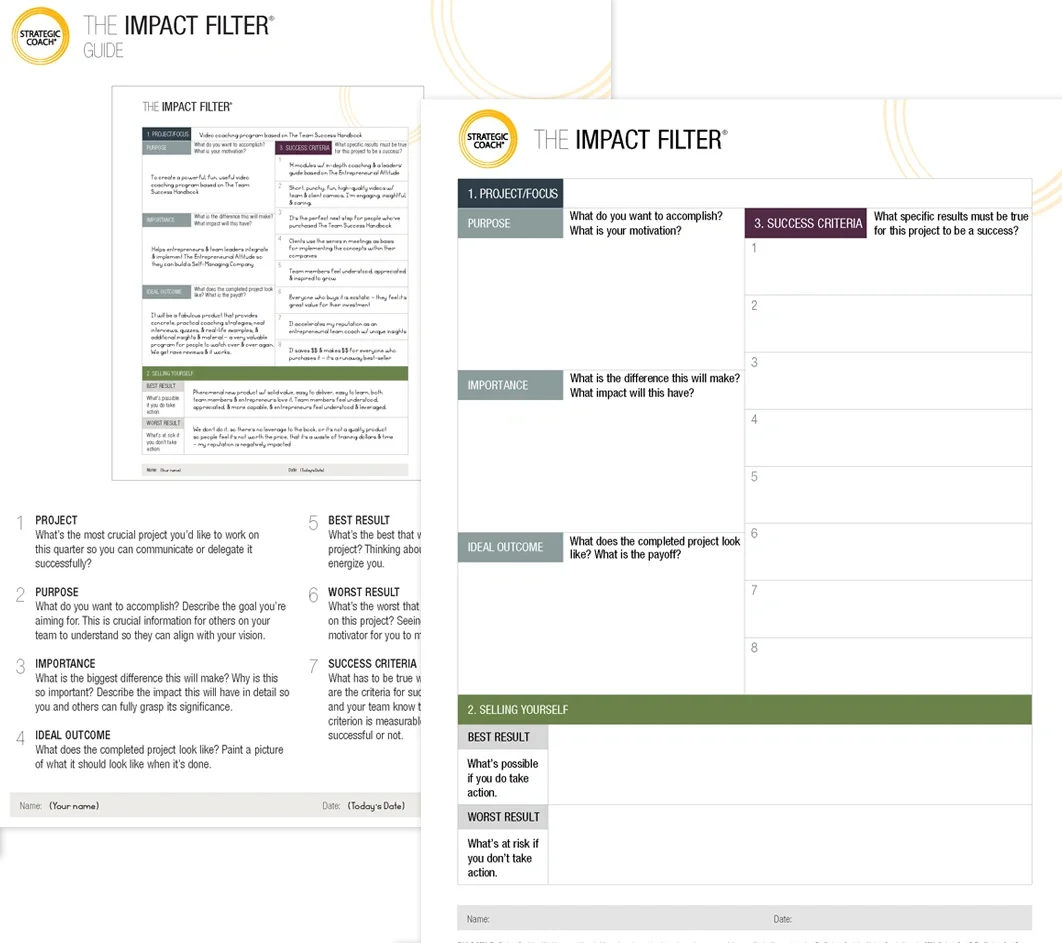Entrepreneurial Freedom: Achieve More By Doing Less
The hard truth is, freedom must be earned and isn’t given to entrepreneurs.
Why?
Because it can’t be. Every individual has a different formula for what constitutes entrepreneurial freedom for them.
Entrepreneurial freedom falls into four categories:
- TIME: Being increasingly in control over your time and having the freedom to devote it to whatever activities you choose.
- MONEY: Having confidence that there is no upper limit or restriction to how much money you can make.
- RELATIONSHIP: Aligning yourself with the people you want to work with—people who give you energy and support your bigger future.
- PURPOSE: Creating a company not just for business or a career but as a vehicle for increasingly living your life as you desire and achieving what’s most important to you.
But while entrepreneurship puts you in the driver’s seat for your future freedom, success, and happiness, you inherently take on more risk and complexity. Because of this, you may feel the pressure to keep up and achieve more by increasing your workload.
But this path of achieving more by doing more will only take you so far, and it pulls you further away from the entrepreneurial freedoms you’re working so hard to attain.
The solution?
Achieve more by doing less.
When you cultivate the right habits to maximize your energy, creativity, teamwork, and time, you can achieve more without doing more.
Below are some helpful tips to remember as you uplevel so you can maximize your entrepreneurial freedom and achieve more while actually doing LESS!
Take Free Days:
- Remember, Free Days—24-hour periods of absolutely no work-related activities, centered around rest and rejuvenation—come first.
- Make Free Days non-negotiable.
- Identify someone to help you plan and schedule Free Days.
- Plan and schedule all vacations, holidays, and days off one year in advance.
- Communicate and explain your schedule to your team, clients, and family.
- Delegate as many activities as possible that are not rejuvenating. But delegate intelligently. Train key people to handle things, and hire the right people to do activities you aren’t good at.
Stay on task:
- Keep a list of your top three money-making activities in front of you.
- Each quarter, review, revise, and redefine these activities.
- Start by intentionally focusing on these top three money-making activities one full day a week, gradually increasing frequency.
- Get rid of your office so you won’t be distracted by “stuff” and “messes.” Start by delegating files and paperwork.
Eliminate everything you dislike doing:
- Keep an ongoing list of activities you dislike, and prioritize them so you know what to delegate first.
- Meet with your team and family to strategize on how to eliminate these activities one at a time. Start with the activities that frustrate you or are the biggest burden.
- Look for other people with talent to help you with these activities.
- Focus on increasing your confidence (let your team’s expanding abilities lead them to feel more confident about taking on new pieces of the business. You, in turn, will feel more confident about your opportunity to focus on your best abilities).
- Be in charge, not in control. As the ship’s captain, you don’t have to keep running down to the boiler room; you can focus on turning the wheel according to your map.
Increase what you love doing:
- Keep an ongoing list of activities you love but haven’t always had the time to do.
- Think about what activities you’re passionate about and give you the most energy.
- Ask other people what activities they think are the best use of your time and attention.
- Explore new hobbies or activities you’ve always wanted to pursue or learn about.
- Use other resources (family, team, travel agent, etc.) to find out how to do more of these activities.
Improve your best results:
- Talk with your team or family to decide what results you want to accomplish at home and at work. Share the big picture.
- Write down your best results in each area, and post them where you and others can see them.
- Envision your bigger future. Having a vision of where you want to go gives a context for all your efforts and keeps you focused. Every new opportunity can be measured against the bigger future you want to create.
Successfully communicate with your team:
- Don’t think out loud unless it’s with someone who knows you well. Ensure you share your ideas clearly and concisely—communicate the desired result and the date by which you’d like to see things happen.
- Learn how each team member best receives information. Don’t assume they like to receive information the same way you do.
- Look at how you can better support your team—make the effort to understand their needs and concerns.
- Know when not to communicate. If you’re feeling tired, stressed, or anxious, be careful how you communicate.
- Listen, and be prepared to handle objections.








